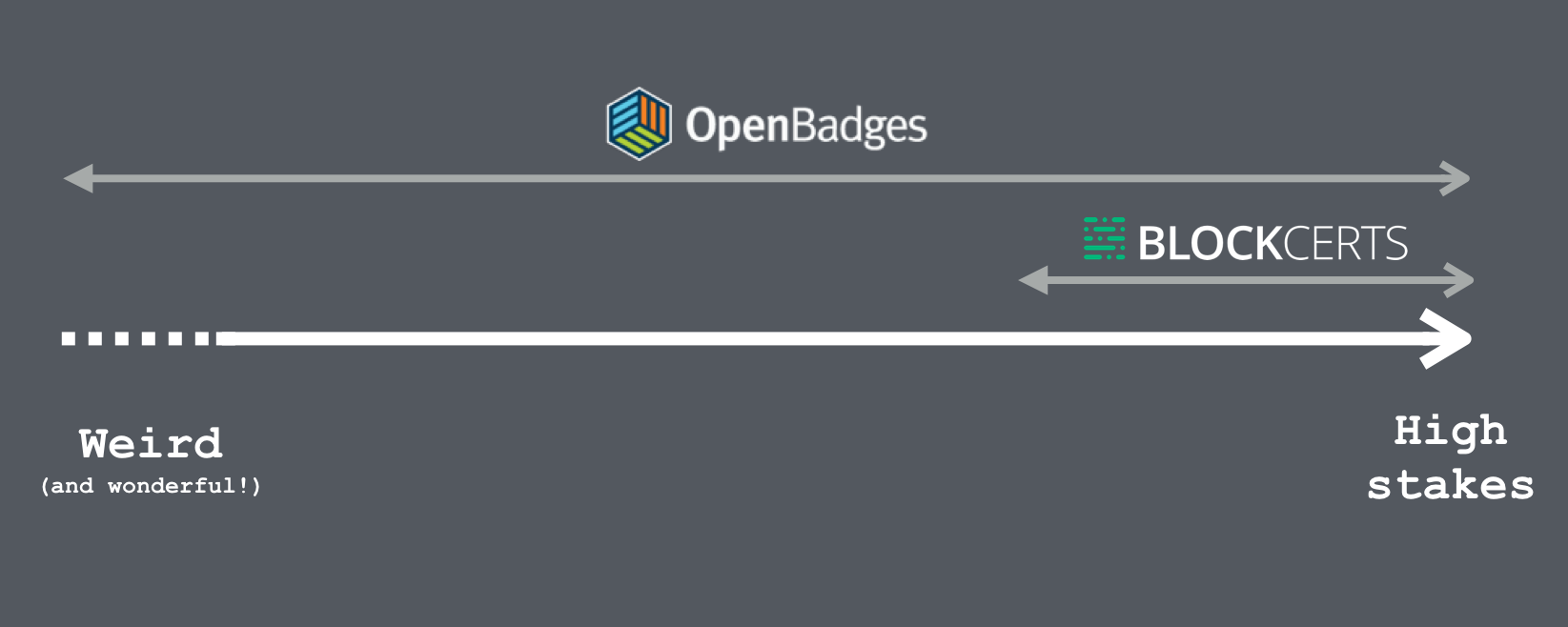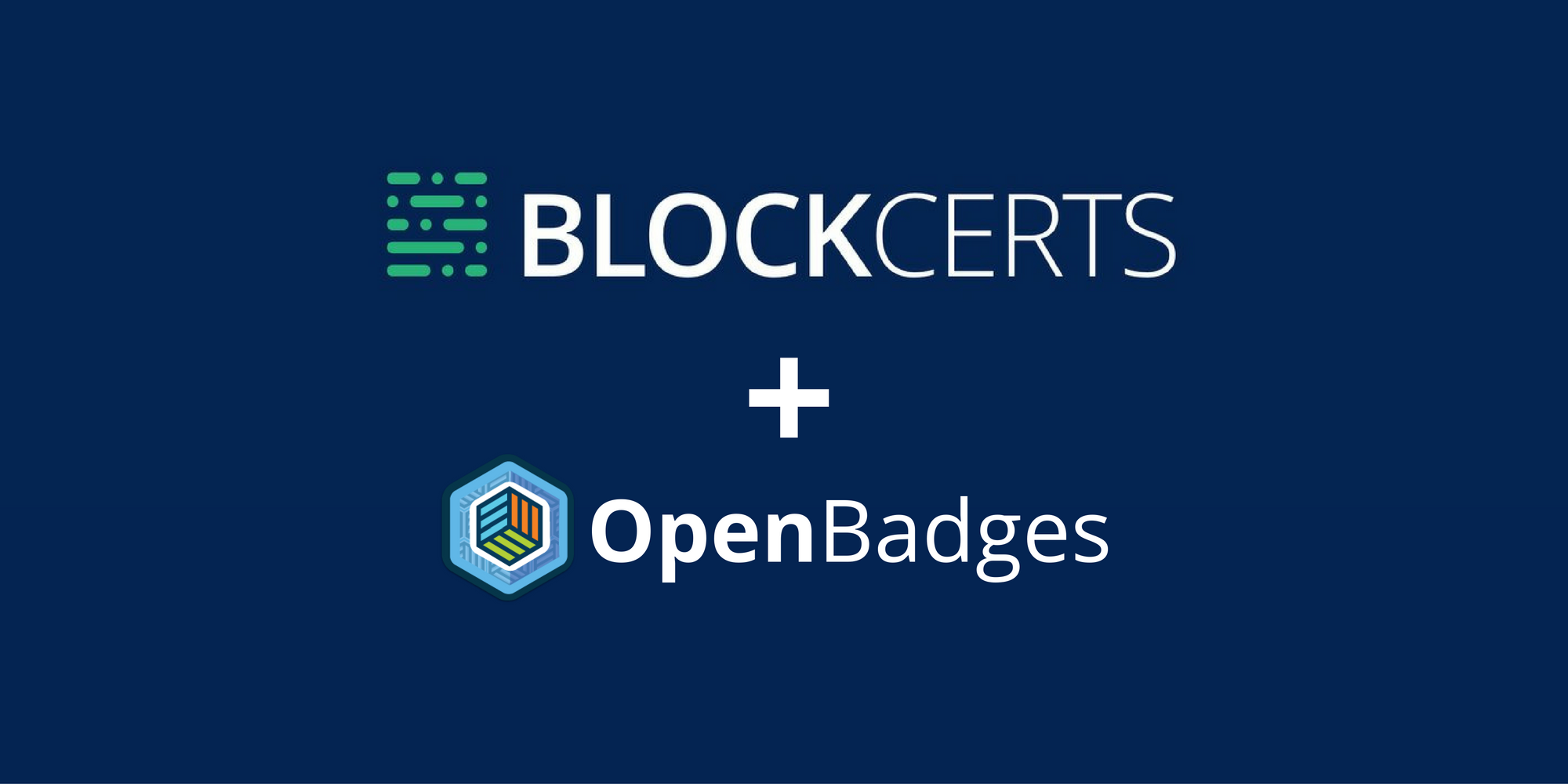Open Badges, BlockCerts, and high-stakes credentialing
I was in a conversation this morning with some people seemingly from the four corners of the earth, who were exploring Open Badges, blockchain technologies, and other developments with a view to building a new platform. My introduction to the group came through Vinay Gupta, who’s not only a extremely clear thinker, but a great connector, too.
Now that badges are what Clay Shirky would call technologically “boring enough to be socially interesting”, people naturally want to think about them in relation to the next big thing. For many people, that ‘next big thing’ is blockchain.
There’s a whole series of rabbitholes to go down if you interested in blockchain-related technologies. In fact, doing so is as fascinating from a learning-about-neolibertarianism angle as it is about new technologies. However, for the purposes of this (education-related) post, it’s enough to say that blockchain is a ‘supply-side’ technology, that allows vendors, platforms, and intermediaries a way of verifying ownership or that ‘something’ happened at a particular time. You should, of course, read the outcome of Audrey Watters’ research project.
MIT have recently launched BlockCerts, which I discussed on this blog recently as being friends of Open Badges. That’s the great thing about open specifications: they play nicely with one another. However, just to clarify my position on this (and it is just an opinion), the thing that blockchain-based credentials are good for is in high stakes situations. I’d be happy for my doctoral certificate, for example, to be on the blockchain. That seems like a good use case.
Where I don’t think that blockchain-based credentials are a good idea are for the more holistic (‘weird and wonderful’) credentials that I might want to earn. These show different facets of who I am, rather than putting everything in the academic, high-stakes bucket. In fact, this is the reason I became interested in badges in the first place.
At a time when major employers are saying that they’re more interested in what people can do rather than their high-stakes credentials, it seems strange that we’re doubling down on the digital equivalent of degree certificates.
Would I use and recommend BlockCerts in my work with clients? Absolutely! But only if what was required involved either zero trust between the parties involved in the ecosystem, or high-stakes credentials. For everything else, the verifiable, evidence-based claims of the Open Badges metadata standard work just fine.


